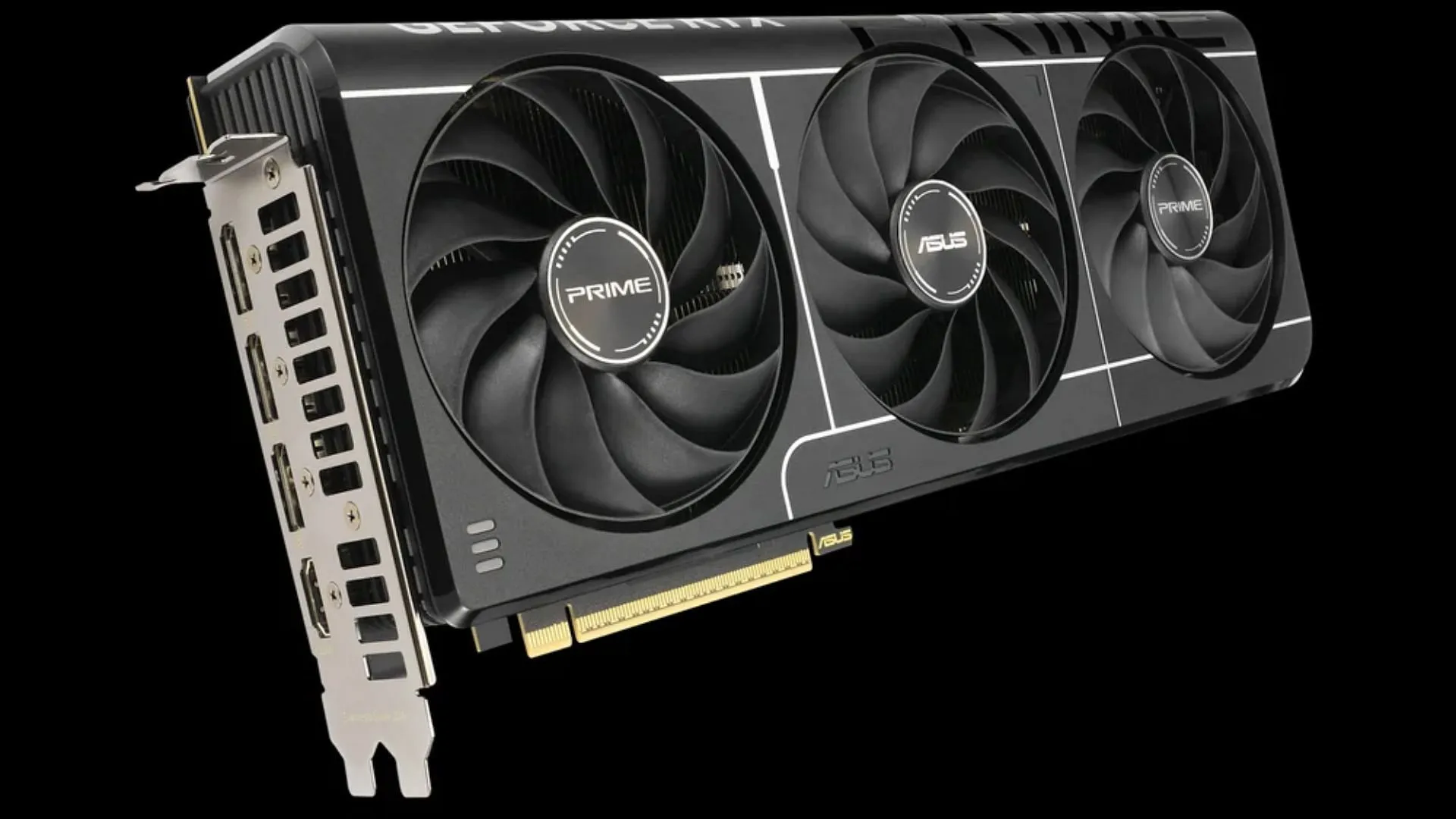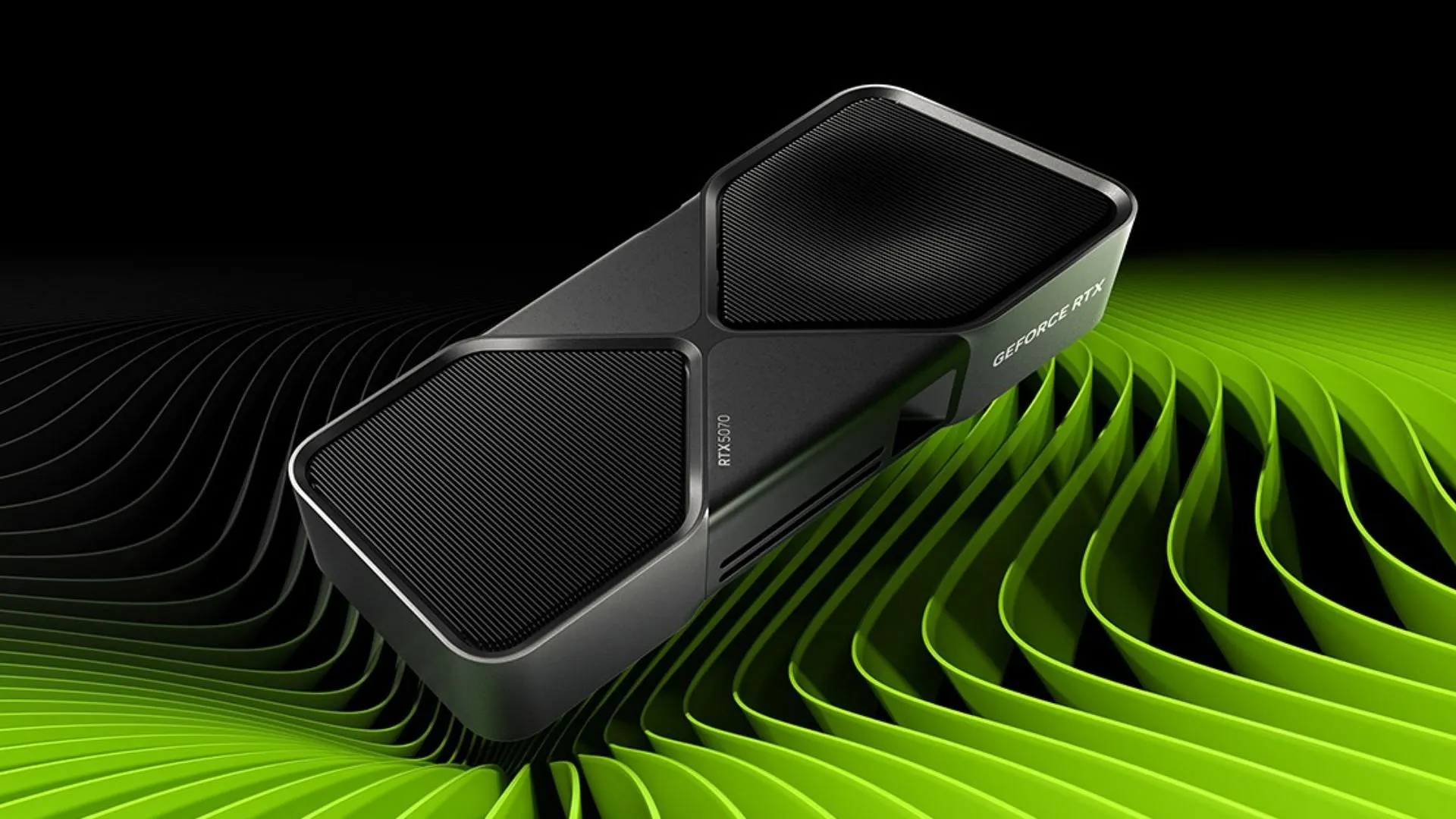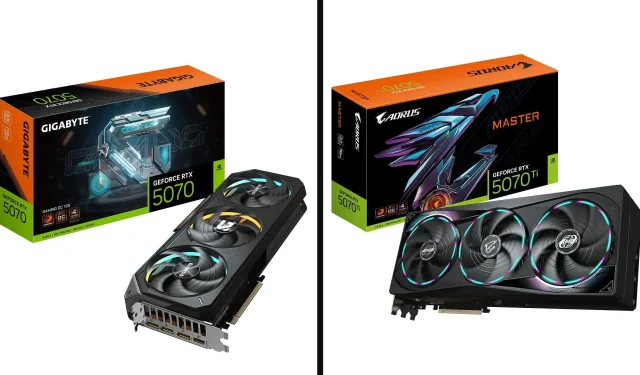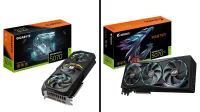The Nvidia RTX 5070 and RTX 5070 Ti stand out as premium GPUs tailored for an exceptional 1440p gaming experience. As members of Nvidia’s latest Blackwell series, these graphics cards boast significant advancements in rendering, ray tracing technologies, and AI-driven upscaling, featuring the cutting-edge DLSS 4 with Transformer-based Super Resolution and Multi-Frame Generation. This makes the RTX 5070 and 5070 Ti compelling options within the midrange segment. But which one is the superior choice for gamers?
This article provides an in-depth comparison of the hardware specifications and performance metrics of both GPUs, helping you make an informed decision on which card may be worth your investment.
High-End 1440p Gaming with Nvidia’s RTX 5070 and RTX 5070 Ti

Both the RTX 5070 and 5070 Ti are engineered to handle the latest gaming titles at high resolutions and visual fidelity. The 5070 is marketed as a “4090-level”performer; however, this claim heavily depends on leveraging DLSS 4 for enhanced performance. In terms of raw processing power, these GPUs exhibit substantial yet modest capabilities that set them apart in the midrange market.
Specifications Breakdown
While the RTX 5070 Ti and RTX 5070 share several hardware characteristics, they come with distinctly different graphics processors— the 5070 Ti utilizes the GB203 chip whereas the 5070 is powered by the GB205. Here are the key specifications for both graphics cards:
| Specification | RTX 5070 Ti | RTX 5070 |
|---|---|---|
| GPU Architecture | Blackwell | Blackwell |
| Process Node | TSMC 5nm | TSMC 5nm |
| CUDA Cores | 8960 | 6144 |
| Tensor Cores | 280 | 192 |
| RT Cores | 70 | 48 |
| Base Clock | 2295 MHz | 2325 MHz |
| Boost Clock | 2512 MHz | 2452 MHz |
| VRAM | 16GB GDDR7 | 12GB GDDR7 |
| Memory Bandwidth | 896 GB/s | 672 GB/s |
| L2 Cache | 64MB | 48MB |
| FP32 Compute | 43.94 TFLOPS | 30.87 TFLOPS |
| Release Date | February 2025 | March 2025 |
| MSRP | $749 | $549 |
Both GPUs cater to the mid-premium market, but the Ti model is priced $200 higher. The $749 price tag of the 5070 Ti is steep, yet it is supported by impressive performance metrics, which may justify the investment for serious gamers.
Performance Evaluation

Performance is a decisive factor in GPU selection for gamers. The Ti variant, equipped with more powerful hardware, showcases faster processing capabilities across the latest gaming titles. The essential question revolves around whether the additional performance justifies the extra $200 spent.
The subsequent performance metrics, sourced from the YouTube channel Testing Games, provide a clearer picture, focusing on UHD (3840 x 2160) resolutions:
| Nvidia RTX 5070 | Nvidia RTX 5070 Ti | |
| Hogwarts Legacy | 29 FPS | 36 FPS |
| Hogwarts Legacy DLSS 4 FG 4x | 92 FPS | 120 FPS |
| Ghost of Tsushima | 46 FPS | 67 FPS |
| Cyberpunk 2077 | 42 FPS | 54 FPS |
| Horizon Forbidden West | 55 FPS | 71 FPS |
| Forza Horizon 5 | 90 FPS | 112 FPS |
On average, the RTX 5070 Ti exhibits a 33% performance increase over the 5070, which is quite significant given the 36% price difference. Interestingly, in titles like Alan Wake 2 and Ghost of Tsushima, the performance gains soar up to 52% and 38%, respectively, showcasing the Ti’s better suitability for future demanding games.
In conclusion, if your gaming approach is limited to 1440p, the RTX 5070 may suffice, presenting a more economical option. However, should you aim for future-proofing, considering 4K gaming flexibility, and the advantage of extra VRAM for AI applications, the RTX 5070 Ti emerges as the more prudent choice.


